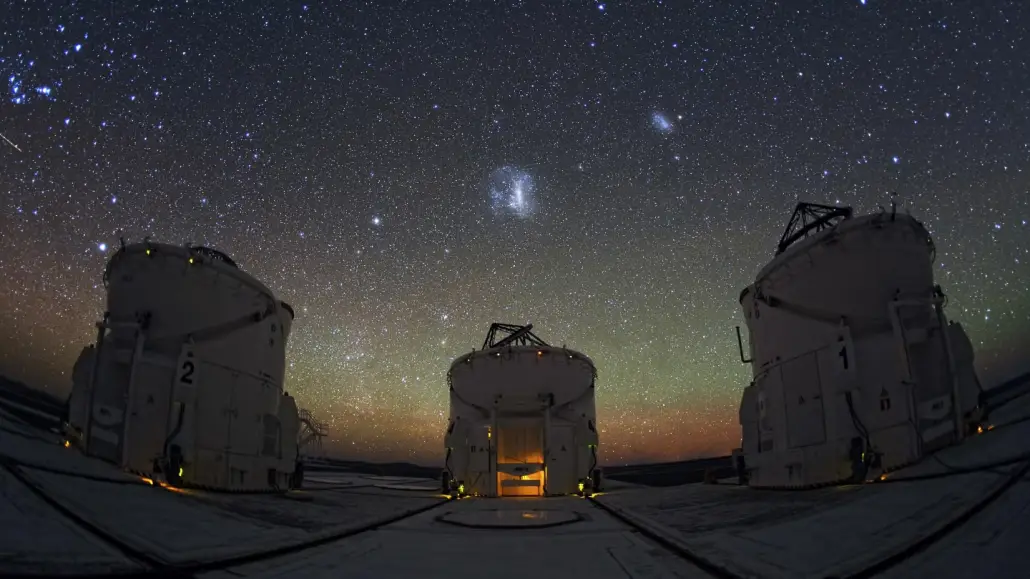
The Large Magellanic Cloud (center) and Small Magellanic Cloud (right) can be seen with the naked eye in the Southern Hemisphere, as shown in this photo from Paranal Observatory in Chile.
Y. Beletsky/LCO, ESO

The Large Magellanic Cloud (center) and Small Magellanic Cloud (right) can be seen with the naked eye in the Southern Hemisphere, as shown in this photo from Paranal Observatory in Chile.
Y. Beletsky/LCO, ESO